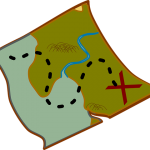 EPISODE SUMMARY:
EPISODE SUMMARY:
In the previous episode, we discussed two out of the three basic senses of the term “meaning.” In episode 3 of season 5, we will continue this discussion and discuss the last leg of our three-pronged understanding of meaning—meaning as sense-making.
EPISODE NOTES:
The last leg of our three-pronged understanding of meaning—meaning as sense-making.
The idea is that we naturally seek coherence and fit in our lives. We are deeply and naturally sense-making creatures. As many have noted we are story listening, story making, and storytelling animals: we seek to make sense of our lives and our place in the universe. As I mentioned in our first episode, I think this is the over-arching sense of the kind of meaning we long for: we long to find our place in the universe, and that will include a meaningful purpose, value, happiness, and more.
One of the deep and natural human longings is to make sense of it all, to understand how our life fits into the fabric of reality. We long for a story that is true, alive, and satisfying. This longing fuels our quest for meaning, now understood as the search for the true—and satisfying—story of the world. So, our question then becomes: which story of the world is the true story of the world. Our choices basically boil down to two, although we can spin a number of lesser stories from these stories. Either naturalism is true or theism is true.
On naturalism, the story of the world is something like matter-vulnerable selves—buffered selves. On this story, our longings for perfect (eternal) happiness, cosmic significance, and now cosmic meaning can’t be satisfied. The universe, as it turns out is cruel. There can be little “m” meaning in life, there can be purposes, and subjective happiness even, but there is no ultimate meaning, no ultimate significance, no ultimate purpose—and the fact that the end of the story, according to naturalism is death—our death and eventually the universes death—this ending to the story affects how we feel about the rest of the story too. So, on naturalism or atheism, life doesn’t imitate art.
On the theistic story, on the other, hand—life is art. We are part of a divine drama—a play. And the universe is, as Calvin puts it, a “theatre of God’s dazzling glory.” If God exists and we are part of a divine drama, then we find ourselves in a universe in which transcendence, care, purpose, significance, and love are built into the very fabric of reality from the start.
CONCLUDING REMARKS:
In order to determine the true story of the world, whether life is a tragedy or a divine drama, we need to first understand what kind of universe we find ourselves in – a naturalistic universe with a naturalistic story, or a theistic universe with a theistic story. Which universes and which story offers the meaning – purpose, significance, sense-making – that our hearts long for?
RESOURCES MENTIONED:
- Goetz and Seachris, What is This Thing Called the Meaning of Life?
Thanks to our season five sponsor:




